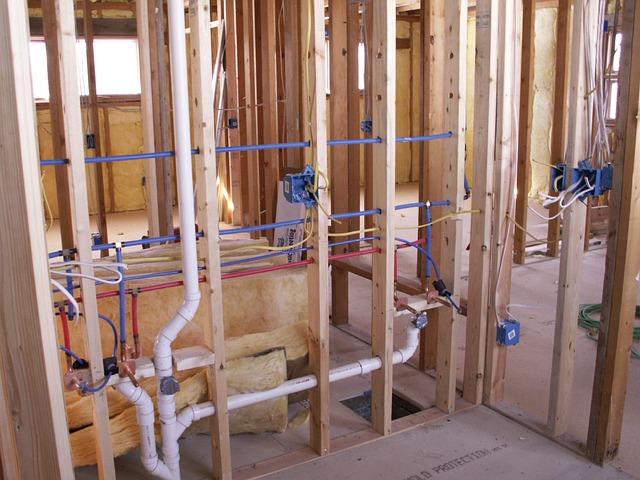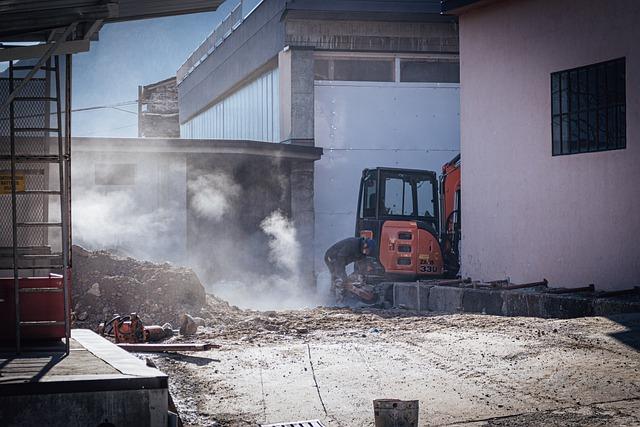
When it comes to constructing a building, the services of a plumber can never be undermined. Plumbers are the reason why you can open the tap for water to flow in the kitchen, laundry room, or bathroom.
When you continue to use the toilet and bathroom without worrying about how your waste gets into the septic tank, then your plumber has done a good job.
This article is an insight into the various types of plumbers available.
Who is a Plumber?
A plumber is skilled personnel tasked with the job of fixing, maintaining, and repairing water pipes. The plumber is also tasked with installing kitchen and bathroom fittings and channeling the sewage of a building into a septic tank.
The job of a plumber is a broad and technical one requiring in-depth knowledge and practical skill in fixing plumbing materials. It’s broader than what many assume it to be. The importance of a plumber to a building project can’t be over-emphasized.
Virtually every building requires the services of a plumber to help decentralize the source of water to every part of the building, to provide an appropriate channel for the collection of waste, and to fix and maintain plumbing fittings involved in these operations.
Even though this task may seem easy, it requires plumbers that specialize in particular aspects of the plumbing vocation to do the jobs effectively; each focusing on their specialty.
Plumbers are trained to handle specific types and nature of plumbing jobs. Their jobs go beyond just fixing pipes and drains; they also deal with lots of complexities.
While some plumbers choose their niche based on the kind of building, some focus on specific purposes such as waste management, water supply, plumbing fittings installation, and so on. It’s best to consult only plumbers that fit the kind of job you want to get done.
Different Types of Plumbers Every Homeowner Must Know
Commercial

When you hear of a commercial building, what comes to mind is a large building that has many people trooping in and out of it.
It is a building whose facilities are under heavy usage by customers. A commercial plumber is specifically trained to handle this type of facility.
Buildings like companies, schools, hospitals, cinemas, and shopping malls all require a plumber. Due to the height and size of such buildings, it’s only normal that they require complex pipe installations, advanced technical know-how of piping, plumbing fittings suitable for commercial buildings, and of course, sophisticated equipment meant for plumbing. Only a commercial plumber is fit to handle such tasks.
A major difference between a residential and commercial plumber is the number of pipes and plumbing fittings they both have to work on. Commercial plumbers encounter many pipes and tanks; they work on buildings starting from one story and extend to high-rising buildings. They are more skillful than the residential plumbers.
Commercial plumbers also deal with the maintenance of pipes and fittings on commercial buildings. Their job extends to the removal of waste and installation of water systems. When there are clogs in drainage pipes or spillages from sewage pipes, they are equipped to handle such cases.
They are at more risk than residential plumbers. And due to the challenges they face, they tend to charge higher for their services.
Licensed Water Supply

Here are experts in any issue related to the water supply in the home. They are the reason why water flows in your kitchen sink, bathroom shower, laundry tap, toilet, and other pipes connected to the water source.
They also fix and maintain water storage tanks; they are in the right position to prescribe the right sizes and types of water storage tanks needed for your home. If your plumbing problem is strictly water-supply related, then contact a water supply plumber.
Sanitary
Sanitary plumbers are the most common and contacted plumbers. Their job includes cleaning and unclogging sewage pipes, installing bathroom and toilet pipes, installing, removing, and maintaining bathtubs, fitting water heating systems in the bathroom, and fixing anything relating to water tanks and sanitary pipes.
Residential
From the name, it can be deduced that they deal in residential buildings. Residential buildings in this context do not only mean your home but any building that is not recognized as a commercial building.
Residential plumbers are the first port of call whenever you need to fix a pipe or plumbing fixture, or you need to remove the clogs in the drainage in your home. They are the plumbers you see in a construction site around your residence getting the plumbing work get done.
The residential plumbers usually operate on a small scale; this means that their jobs do not require a lot of technicalities like that of a plumber fixing the pipes in a commercial building.
Their focus is on getting the taps in your kitchen, laundry room, toilet, and bathroom to work perfectly, plus ensuring that the sewage in your home is channeled properly to the septic tank. They are also equipped with the skill of repairing the fittings such as the shower, heating system, and sink. You may think of them as home-friendly plumbers.
They, however, acquire their skills by being under the tutelage of an established residential plumber over a period.
Service and Repair
These plumbers specialize in the repair of leaking pipes, taps, showers, tanks, and sinks. They also focus on unclogging toilets and drains and servicing water heaters and other plumbing fittings.
They are experts in repairs and are called to maintain plumbing fittings in commercial buildings. This means that they can work in both residential and commercial buildings.
Most service and repair plumbers are also capable of fixing pipes and other plumbing materials but they choose to specialize in the repairs aspect. They are also capable of troubleshooting systems, providing solutions, and working hand in hand with other professionals to see that all plumbing issues in a building are fixed.
What to Consider when Choosing a Plumber
Having known the various types of plumbers, you must hire only those that fit a particular need. It will be frustrating if you have to keep calling on different plumbers to repair and fix plumbing-related matters in your building. There are tips to watch out for.
1. Plumbing Experience

Before you hire a plumber, it’s best to enquire about their experience level. Some plumbing jobs require the services of only experienced plumbers. It’s not recommended to gamble with your safety by hiring a novice. This is not to discourage you from hiring those that are new in the vocation but to let you know when to involve only experienced hands.
2. Service Charges
While it is usual to always go for cheaper services, you should also weigh the expertise of a plumber before deciding if their charges are on the high side.
Most plumbers who learned the vocation properly and are good at what they do will always raise their charges.
You can check how reasonable the charges are and decide whether to hire them or not. It’s better to pay more for a job and get it done properly than to spend money continually on repairs.
3. Service Warranty
A skilled and confident plumber should be able to offer some level of assurance in the durability of their work. Asking for some duration of warranty might be an effective way of determining a plumber that might deliver an excellent job.
Shy away from plumbers who choose not to assure you of the strength of their work.
4. Certification
It’s not enough for a plumber to tell you verbally that he or she is a licensed plumber in any given specialty.

Request for a license from any relevant body that specializes in the vocation. Failure to request for such may be tantamount to having any self-acclaimed plumber tamper with your building, thereby putting residents at risk and making you spend more money on continuous repairs and servicing.
Conclusion
Plumbing issues are some of the most dreaded problems for many homeowners. The discomfort it brings, financial expenses it incurs, and fear of the problems re-occurring can be daunting. The problems can be resolved by knowing the types of plumbers in the vocation and only choose to engage them in their area of expertise.






1 comment
Harison wanjala simiyu
Plumbing
Leave a comment
This site is protected by hCaptcha and the hCaptcha Privacy Policy and Terms of Service apply.